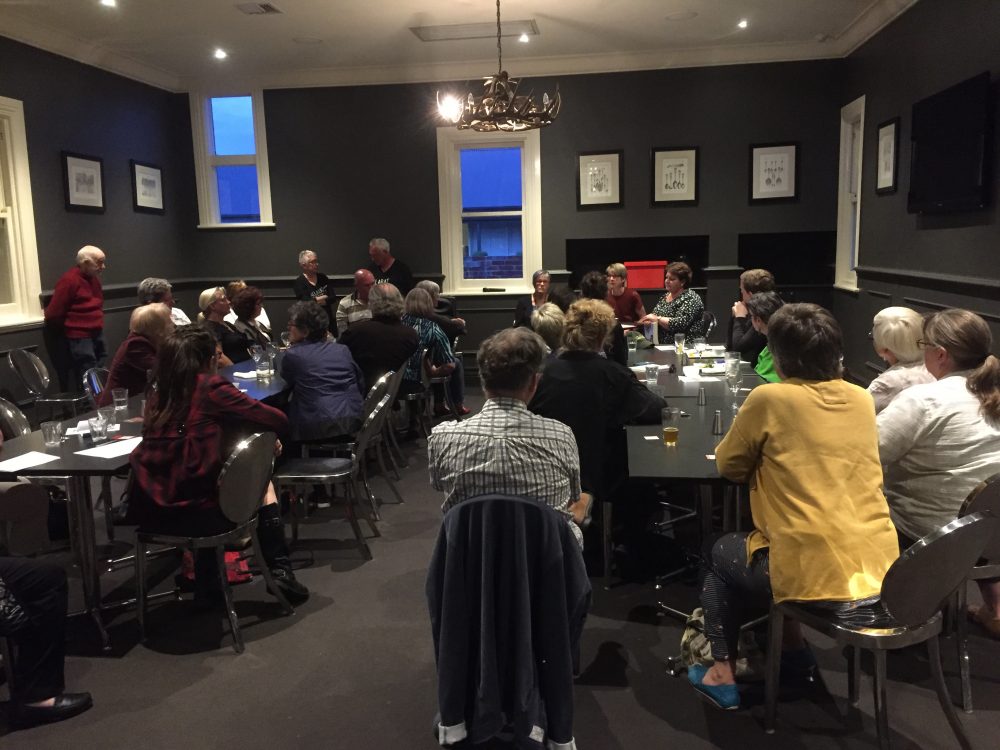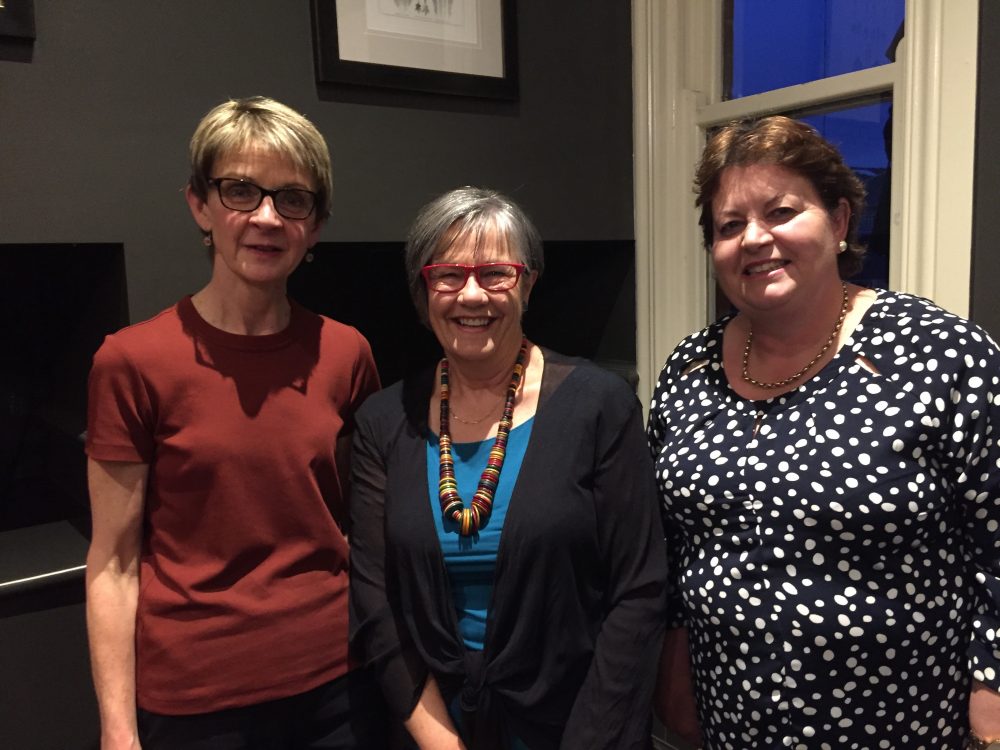For the Ballarat Writers October members’ night on October 24, 2018, we were lucky enough to have local author (and BWI celebrity) Heather Roche (HR) interview local booksellers Dianne Woodhouse from Ballarat Books (DW), and Tracey Willersdorf from Collins Booksellers on Lydiard (TW).
The topic of the night was how to approach booksellers with your finished, self-published book, which means books all printed and ready to be sold.
The following is a summary of the evening.
HR: What percentage of books that you carry are self-published?
TW and DW: It’s quite a small percentage; it’s just the way the market’s evolved.
HR: Are there many people coming to check the market?
TW: We support local writers by consignment, and it’s often just one or two books on the shelf. Sometimes it’s no people, sometimes it’s two. It’s often a problem because a lot of self-published authors won’t make appointments, and booksellers can sometimes see up to 50 publishing reps in a week.
DW: There are also people coming from far and wide to approach Ballarat Books to sell their books (not just people from Ballarat).
HR: What sells best?
TW and DW: Biographies and Australiana. Fiction is hard because of competition, so you need to think about your name and who you’re up against on the shelf.

HR: As a bookseller, what do you look for in a book?
TW: Production quality. Don’t go cheap, make sure it looks like a book that belongs in their bookstore. Binding, font, paper weight; it has to be a beautiful thing to hold. People DO judge a book by its cover.
Biographies sell well, but marketing is important, and relevant people make the book easier to sell.
DW: Back cover copy is important and so is font consistency. Go into a store and look at the colours etc. A lot of self-published books are very dark and most commercial books aren’t. Make sure you focus on the layout as well; a book should be easy to navigate and follow.
HR: Is marketing still important?
TW and DW: You need to still market the book by yourself. You should know your target audience and know what sellers can cater to that audience. Think about market alignment.
You also need to think about how marketable the book is as an object. It needs a reasonable production value (nice quality paper, a decent cover) but ultimately it does have to stand up on its own as a piece of writing.
If you’re going into booksellers to ask about having your book on their shelves, give yourself the dignity to be rejected gracefully, and don’t demand an answer as soon as the book is in a bookseller’s hands. Make an appointment and let them give your book the time it deserves.
Also, know what the options are as a self-published author as well. Don’t rely on your local bookshop to sell your book for you — the joy of print-on-demand means that you can sell worldwide.

HR: Marketing and advertising: what works?
DW: When someone self-publishes they often don’t put a lot of thought into the cover or marketing, selling or promotion. A lot of authors don’t want to get up and talk about their book, so that’s something you need to consider – how are they going to market it? How will you relay it to the market, is there a launch etc.? Think ahead and think about audience size and reach.
TW: Even if you have a book on a shelf, if people don’t know what it is then they won’t think to buy it. Think about product differentiation: what makes your book different? Think about cost and all these things, as even with the best of intentions books can fail, so you need to put the work in.
Remember that marketing is a completely different skillset and you may need to put some time and research into that as well.
HR: Anything we absolutely should or should not do?
TW: Manage your expectations and give booksellers the time to evaluate your work and see if it suits them. Give people space and treat it like a business deal. Booksellers are busy!
DW: Before you get your work published, talk to a bookseller. Get it professionally edited and designed, look at the genre competition and think about illustrations. Seek advice before you send it to print. Think about the launch; promotion doesn’t need to be expensive. Don’t be afraid to court publishers, even independent publishers, before deciding to self-publish.
As a word of caution, be wary of overseas and online publishers. Not only are they expensive, but the quality is often poor.
—
The takeaway? If you’re going to approach a bookseller with a self-published book:
- Make an appointment
- Make sure your book is a beautiful object that looks like it belongs in a bookstore
- If you haven’t printed your book yet, don’t be afraid to ask questions about how it should be printed (cover art, paper stock etc.). It’ll save you disappointment (and needing to reprint it at a later date with nicer stock etc.).
It was a lovely evening, and Ballarat Writers is very grateful to Heather, Dianne and Tracey for their time.